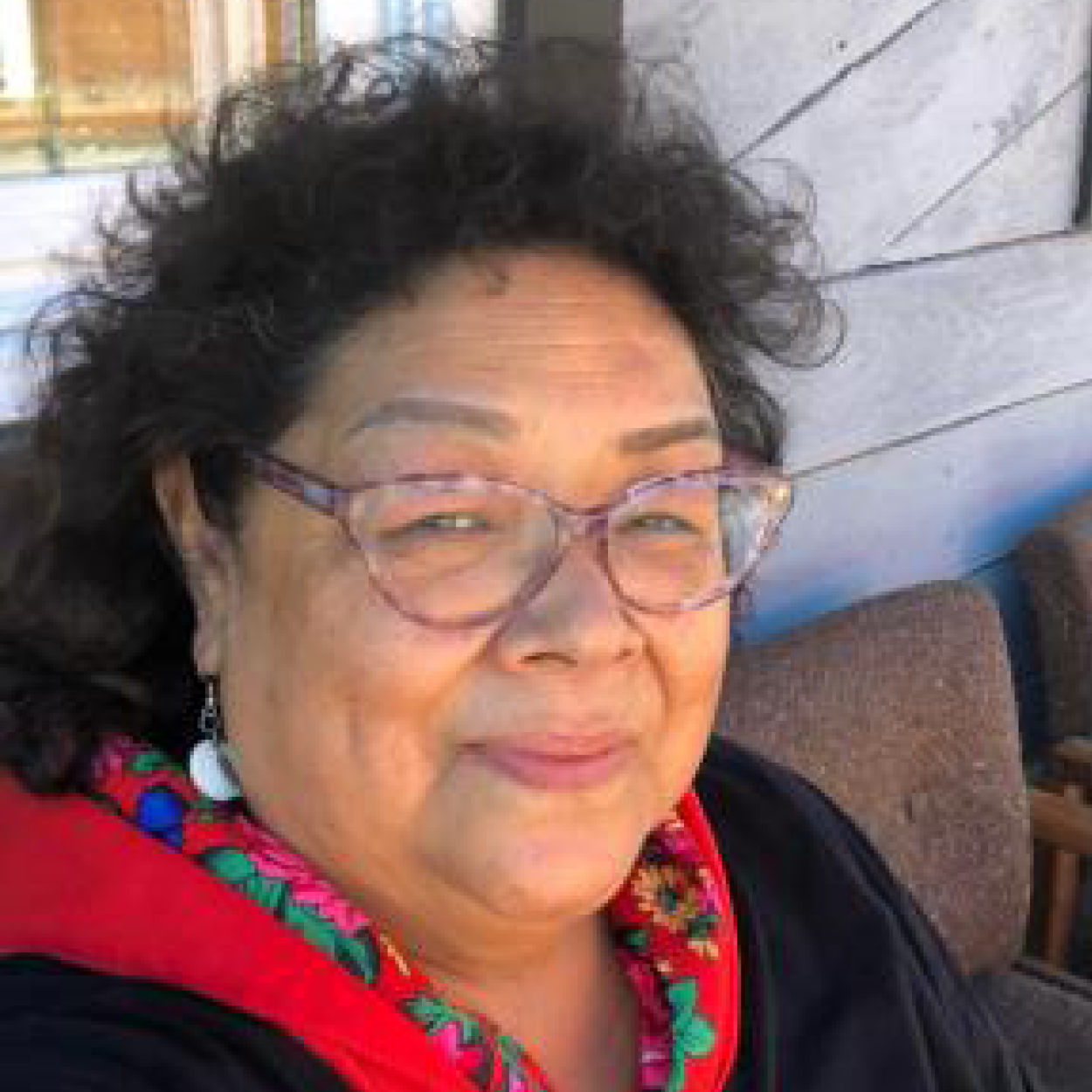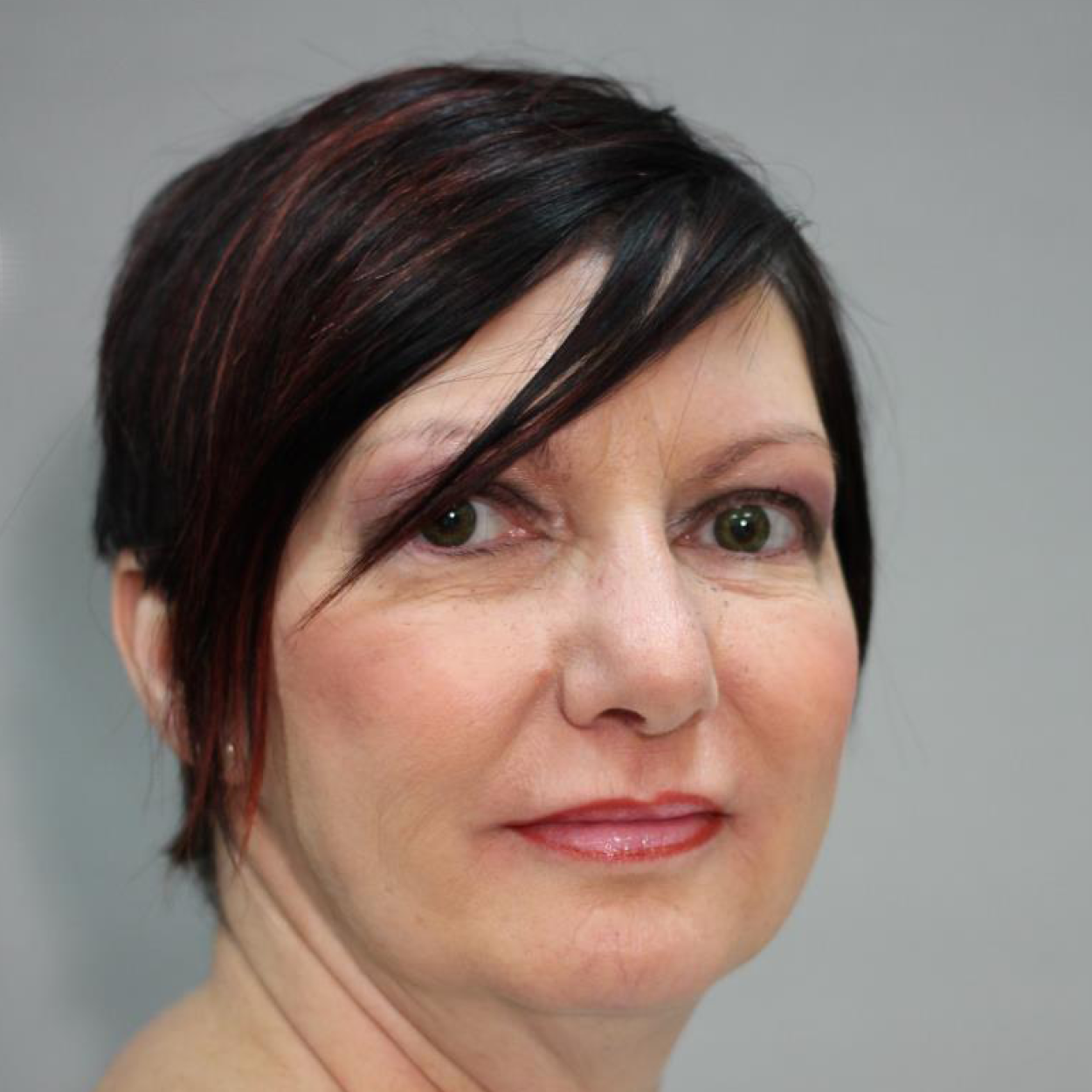Presenters
 Aanii, Boozhoo, Koolamolsi. My spirit name is Wabusk Skweow Kahetapit Neegn Nipeek Ohscheh - which means “Polar Bear Woman/White Bear Woman Who is Looking Ahead from the Water”. I am Lenaapeew/Anishinaabe kwe. The Nation I come from is Elunaapeewii Lahkeewiit First Nations, known as Delaware Nation of the Thames. This is the First Nation my father is from and where I grew up for 16 years. In this Mino Bimaadiziwin, it is the matriarchal system of my mother, my grandmother, and my great-great grandmother of the Makwa Dodem; Bear Clan system that I am. These women are the inter-generational wisdom waters I come from. Not only do I carry within my blood memory of Leni- Lenape Nation. I am the descendant of Ojibway, Odawa, and Algonquin Nation, which comes from the territory of the Georgian shore of Neyaashiinigmiing First Nation territory, and from White Fish Lake First Nation, known today as Atekameksheng Anishnabek First Nation.
Aanii, Boozhoo, Koolamolsi. My spirit name is Wabusk Skweow Kahetapit Neegn Nipeek Ohscheh - which means “Polar Bear Woman/White Bear Woman Who is Looking Ahead from the Water”. I am Lenaapeew/Anishinaabe kwe. The Nation I come from is Elunaapeewii Lahkeewiit First Nations, known as Delaware Nation of the Thames. This is the First Nation my father is from and where I grew up for 16 years. In this Mino Bimaadiziwin, it is the matriarchal system of my mother, my grandmother, and my great-great grandmother of the Makwa Dodem; Bear Clan system that I am. These women are the inter-generational wisdom waters I come from. Not only do I carry within my blood memory of Leni- Lenape Nation. I am the descendant of Ojibway, Odawa, and Algonquin Nation, which comes from the territory of the Georgian shore of Neyaashiinigmiing First Nation territory, and from White Fish Lake First Nation, known today as Atekameksheng Anishnabek First Nation.
In my RedPath of 22 years of sobriety, like many Indigenous First Peoples across Turtle Island, my healing journey was all about re-storying/ re-learning from the impact of colonization, assimilation, and oppression. The Residential school system, Indian Day School and other colonized structures within the Education system all played a part of the attempt to dismember my Indigenous Identity. My involvement with Sex Trade and Human Trafficking in my Waundering/Wondering life stage, as I continued my ongoing alcoholism, drug addictions, homelessness, and domestic violent relationships. It was those Indigenous Elders, Grandmothers and keepers of the ceremonies that supported me, encouraged me, and taught me how to gain back my lost identity, culture and language. In my planning and planting stage of life for over 15 years I travelled and assisted some of those Indigenous Elders and Wise Indigenous Grandmothers by helping with the medicines and ceremonial preparations. I assisted and helped as I learned other different indigenous healing methods to aid in the impact of historical traumas.
I travel to different Indigenous communities within Southern Ontario, Northern Ontario, Northern Quebec, and New Mexico, and help with nearby First Nations communities close to London and Windsor, Ontario. Other roles and responsibilities an Oshkaabewis kwe and Ogichidaa kwe, my profile consists of working and helping various Indigenous organizations, on and off-reserve. I was as an Intake/Assessment Worker, Traditional family counselor, a NNADAP/Drug and Alcohol worker, Cultural Coordinator/developer within a Native Child and Family organization, and I even had the opportunity to work in Corrections Service Canada in the Brantford Jail and Super Jail in Milton, Ontario with our Native Brotherhood. In the city of London, I was a Drug and Alcohol Coordinator at a Friendship Centre, and today, contracted as a Wholistic researcher as a Ceremony and Transition Coordinator for Ontario Federations of Indigenous Friendship Centres. And, within the City of London’s culture services, I sit with a circle as we organize with the London Arts Council different art, sharing circles, educating about the Truth and Reconciliation.
Due to the acts of discrimination and marginalization against Indigenous women, in my healing journey, I fought back. I started my educational journey to obtain my Bachelor of Social Work through FNTI/Toronto Metropolitan University. In 2020, I received my Master of Social Work – Indigenous field of Study at Wilfrid Laurier. Today, I continue to do contract work implementing Indigenous research theories, practices and aid in building relationships. As an educator, I continue to teach at the Anishnaabek Education Institute within the Social Service Worker Program, Native Traditional Healing Methods to future Indigenous Community Oshkaabewis/Helpers. Now that I am in my grandmother stage of life, as a Nokimis (Grandmother), I continue to walk, teach and share the teachings my Elders and Grandmothers taught me in my own private practice. I am registered as a Mental Health Provider. For non-insured health benefits and carry in my bundle RedPath- Living without Violence, RedPath- Addictions and RedPath- Child and Youth certified facilitator training. My self-care is all about Ceremony of Life and ongoing healing. At times, I too need to sit on the land, by the water, and be by that fire. It is with the spirit of my Sacred Knowledge Bundle, that continues carries me and guides me to share, guide and teach all about this Good Life, this Mino Bimaadiziwin. All Our Relations.
 Shane is an educator, Ph.D. Candidate (ABD, Trent) and Joseph-Armand Bombardier Scholar who has ancestral ties to both the Mi'kmaw and Newfoundland settler communities. Originally from the southwestern coast of Newfoundland, he has been residing in Tkaronto since 2006.
Shane is an educator, Ph.D. Candidate (ABD, Trent) and Joseph-Armand Bombardier Scholar who has ancestral ties to both the Mi'kmaw and Newfoundland settler communities. Originally from the southwestern coast of Newfoundland, he has been residing in Tkaronto since 2006.
Currently, Shane serves as an Assistant Professor within the Faculty of Community Service and School of Social Work and holds the position of Academic Coordinator for the Indigenous Knowledges and Experiences Certificate at Toronto Metropolitan University. Shane's extensive research interests include critical Indigenous studies, urban Indigenous identities, colonial and decolonization theories, Indigenous research and knowledge methodologies, and Indigeneity. In particular, his doctoral research explores the influence of digital environments such as social media, Instagram, and TikTok on Indigenous identity formation, maintenance, and resurgence. His work also seeks to evaluate the role of these digital spaces in supporting Indigenous futures and revitalization projects.
Shane’s professional social work practice has been in educational and community-based settings, with a strong background in building relationships with service groups and organizations in the broader community to provide services to diverse populations. His work has included populations that experience systemic marginalization and oppression in areas such as Deaf culture, homelessness, mental health and addictions, child welfare, and Indigenous communities.
 Mi'kmaq and Celtic Nations, originally from New Brunswick, Dr. Baskin is currently an associate professor in the School of Social Work at Ryerson University. Her spirit name translates into English as something like, "The Woman Who Passes on the Teachings" and she is of the fish clan.
Mi'kmaq and Celtic Nations, originally from New Brunswick, Dr. Baskin is currently an associate professor in the School of Social Work at Ryerson University. Her spirit name translates into English as something like, "The Woman Who Passes on the Teachings" and she is of the fish clan.
Cyndy is a prolific writer and experienced researcher with publications that include two novels, a text titled The Value of Indigenous Knowledges in the Helping Professions, a co-edited book titled Spirit in the Quest of an Equitable World: Spirituality, Social Justice, and Social Work, and numerous journal articles and book chapters. Prior to joining academia, Cyndy was a social work practitioner, consultant and trainer for many years, the latter two of which she continues to do today.